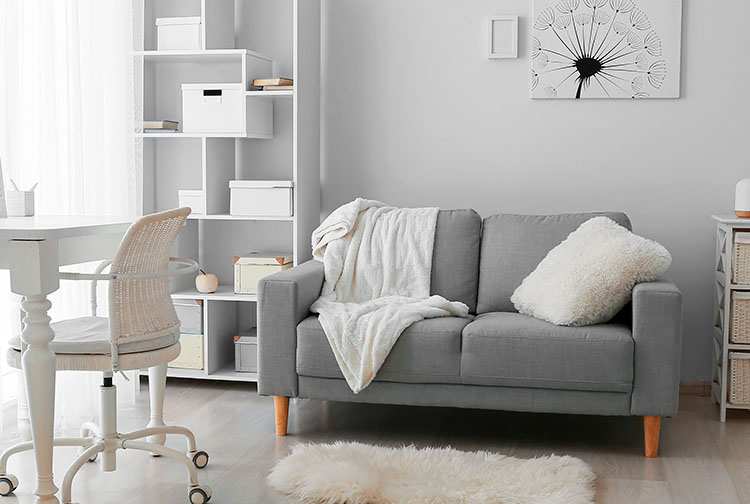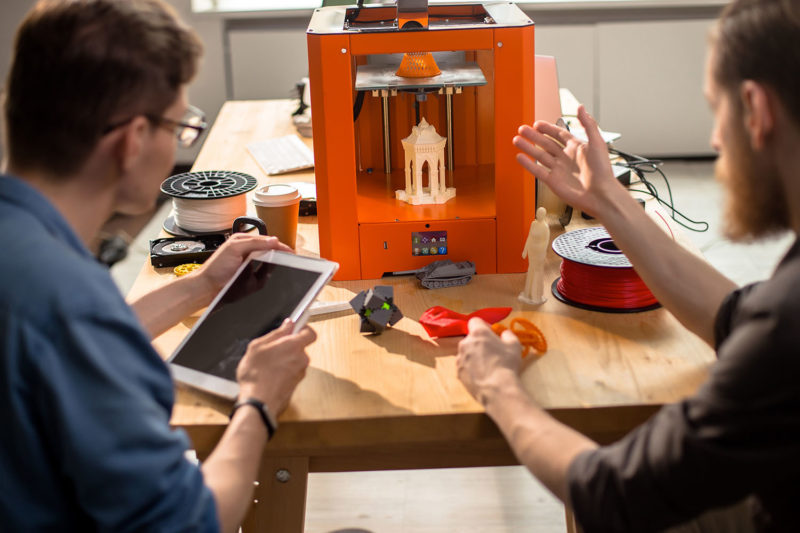11 tips to improve family finances
La pujada generalitzada de preus està complicant les finances de moltes llars. Cada vegada és més difícil quadrar els comptes per a arribar a final de mes i encara més dedicar una part dels nostres ingressos a l’estalvi. Davant aquesta situació, recollim onze consells per a millorar l’economia familiar.
- Aplicar la fòrmula del 50/30/20. Es tracta d’intentar distribuir els nostres ingressos de forma que el 50 % es dediqui a les despeses (llum, aigua, lloguer, hipoteca, telèfon, menjar, estudis…), el 30 % al nostre oci (les nostres sortides en esmorzars o dinars fora de casa, vacances, regals…) i el 20% restant a l’estalvi.
- Retallar subscripcions innecessàries. A quantes plataformes digitals estem subscrits? Les fem servir totes? Cal que les continuem pagant? I aquella subscripció a aquella revista que mai acabem llegint? Totes les subscripcions automàtiques s’han de revisar per valorar si són necessàries. Avui en dia existeixen diferents plataformes amb contingut en línia que són legals i gratuïtes, només cal fer una ullada per Internet per trobar-les. I recordem que les biblioteques també són una gran font de llibres i contingut audiovisual.
- Revisar els nostres contractes de llum, gas i telèfon. Cal revisar amb molta cura els contractes que tenim amb les diferents companyies de serveis. És una de les partides on més diners se’ns en van sense adonar-nos al cap de l’any. No podem prescindir d’aquestes despeses, però sí reduir-les.
- Fer més àpats a casa. Reduir les vegades que sortim a menjar fora de casa o que comprem menjar per emportar-nos pot arribar a ser una molt bona font d’estalvi. No cal deixar d’anar als restaurants, però sí reduir la quantitat d’àpats que fem fora de casa, i més si som una casa de família nombrosa.
- Reutilitzar. Quan una cosa se’ns faci malbé, mirem si podem reparar-la i allargar-ne la vida abans de llençar-la a les escombraries. També és una bona eina d’estalvi comprar roba de segona mà, llibres, mobles i fins i tot electrodomèstics.
- No comprar impulsivament. Una de les raons principals per les quals no fem un bon ús dels nostres diners són les compres compulsives. A partir d’ara, quan vulguem una cosa, donem-nos un marge de temps per saber si de veritat la necessitem. Ens sorprendrà comprovar que podem prescindir de gran part de les coses que volem comprar a cop de targeta.
- Comparar preus. Quantes vegades ens ha passat que comprem un telèfon mòbil, per dir un exemple, i l’endemà veiem una oferta del mateix producte en una altra botiga? Això ens passa per no comparar. Hem d’aprendre a comparar tot el que comprem, fins i tot el menjar.
- Fer servir menys el cotxe. Tot i que molta gent no pot prescindir del transport privat, sí que en podem reduir l’ús. Mirem d’utilitzar el transport públic o compartir cotxe si és possible. I fem ús també de la bicicleta, i sobretot, de les nostres cames, que caminar és sa i gratuït.
- Escollir una bona entitat financera. Són necessàries totes les nostres targetes de crèdit? Quines comissions ens cobra la nostra entitat financera? Revisem si aquesta entitat financera ens ajuda a tenir una bona economia personal, o si, per contra, cal que fem un canvi. Actualment, hi ha moltes entitats financeres amb eines que ajuden a controlar les teves despeses i que alhora et donen un cop de mà per estalviar: escollim una bona entitat financera pel nostre futur.
- Adaptar-nos a la nostra butxaca. Si ingressem una certa quantitat de diners, no fem més del que la nostra economia es pot permetre. No cal “estirar més el braç que la màniga”, com diem els catalans. Fem un ús responsable dels nostres diners segons els nostres guanys.
- Ser previsors. Hem d’analitzar l’evolució de les nostres despeses en els últims mesos per comprovar en què se’ns va els diners i on podem retallar. Davant l’actual situació inflacionària, en alguns casos serà necessari aplicar una “economia de guerra” segons com estimem que evolucionaran els nostres ingressos i despeses.
- Ja fa dies que sabem que els diners no fan la felicita. Però podem aportar estabilitat a la nostra economia personal per evitar-nos disgustos. A més, en aquests temps d’incerteses econòmiques, val la pena recordar la frase que ens va deixar el filòsof Sèneca: “No és pobre qui té poc, sinó qui molt desitja”.
Si vols descobrir la millor opció per protegir els teus estalvis, entra a Preciosos 11Onze. T’ajudarem a comprar al millor preu el valor refugi per excel·lència: l’or físic.
We have heard many times that management salaries are above what is reasonable and fair. That, in fact, the differences between the highest and lowest paid in a company cannot be infinite. And in fact they should be very finite and limited. It is unreasonable to think that in a company there has to be someone who has infinitely more responsibility than the rest of the workers. But if we look at reality, we see that we accept the opposite. And is that a good thing?
If we look at companies that have gone bankrupt mainly because of the irresponsible actions of a few, we see that in general they cannot be made to pay back what they have taken, or repair what they have damaged. In some cases certain liabilities can be criminally prosecuted, but these are minimal, as excessive greed or greed does not appear to be a criminal offence in the criminal code. In fact, being greedy (but calling it ambitious), is behaviour that is quite generally encouraged in companies.
But it is not always the case that the negligent manager is driven by greed when he or she engages in behaviour that can lead to disaster. And often these behaviours and decisions of people in charge of high-risk situations cannot be detected in time to avoid undesirable consequences. We could find recent cases, such as those where the economic future of people with retirement savings is at risk (bank failures) or, even more important, those cases where human lives could be lost (for example the recent case of the train accident that we have in mind these days).
More control, fewer problems?
We wonder how it can be that such essential matters are sometimes left in the hands of a single person, and that the negligence of a single person (due to excessive greed or possible carelessness) can be the sole cause of an unavoidable misfortune. These cases make us think about how the situation could be resolved in order to avoid such dire consequences. Could controls be put in place that would make it possible to avoid these consequences? And what should these controls be? But more importantly, does it make sense that certain decisions, actions, and behaviours are in the hands of a few managers? Is this the most effective way to exercise control in order to avoid what is not wanted at all?
It seems clear that in a system where those who have responsibility are rewarded too generously, and made responsible and infallible, it is not good for anyone. In the long term, not even for the manager himself, although in the short term it may seem so. It creates a false aspirational, pyramid-like motivation, where everyone wants to get to the top. But when they get there, they must be infallible: zero defects and no chance of failure. In case he has no bad faith, it can end very badly, if the consequences of his action or omission are disastrous.
And despite acting in bad faith, if he measures the consequences of the action well, and they are not punishable, he can wipe out the welfare of many people and go unpunished. And incorporating formal controls is not feasible, since creating controls that can foresee everything is not possible. So how can we do it? It seems that one way would be to foster a culture of co-responsibility. We can all be greedy, but if we all have to reach a goal together, and we have to support each other, the temptations are lessened. In the same way, human errors are compensated for, because it is possible for one person to be negligent or overconfident, but for all of us to be so at the same time, it seems more complicated. The pressure is reduced, checking on each other makes us more cautious, and also, and very importantly, we have to share the credit when things go well. This helps us to realise that one person alone will not get as far as a well-knit team.
Sharing to tap people’s potential
Organisations work best when people give their best and do so motivate beyond the salary they receive or the status they get at work. And they do their work without following the fine print of their employment contract, and therefore have an involvement that goes beyond their contractual obligations.
In times of difficulty, companies can succeed if workers have internal motivations that make them go beyond their obligations, providing that quality that cannot be measured, but which is key to creating a work climate that facilitates collaboration and where work can bring satisfaction to everyone. It seems utopian to say this, but it is clear to many employers that their companies work when people are valued in the workplace and can fulfil themselves professionally. And therefore, they actively encourage this atmosphere of trust where employees are willing to contribute that extra that is neither financially remunerated nor specified in an employment contract.
Solidarity has a spontaneous and voluntary nature. Encouraging it should be based on the recognition that the worker does it because he/she wants to, and that it has merit precisely because he/she does it that way. What is spontaneous on the part of the worker can be recognised. But it must be by recognising its spontaneous nature, never through an incentive associated with the fulfilment of an objective. This must be kept in mind so as not to lose that special quality that requires genuine recognition, without forcing it to be there.
11Onze is the community fintech of Catalonia. Open an account by downloading the app El Canut for Android or iOS and join the revolution!
Here we present 10 recommendations for you to enjoy your holiday and save on bookings and many other things.
This year, many people are expected to go on holidays in July, but will we have money for our much-desired holiday? I am sure we are all thinking about summer and, therefore, on the holiday; many of you already have in your mind the place where you want to travel, but you are waiting for new recommendations on whether we will finally be able to take a plane and enjoy a well-earned disconnection.
Holidays are necessary to reset ourselves, to enjoy our beloved ones’ presence, which is very necessary, and to recharge the batteries to get back to work with a clear head. It is also a time when we try not to pay so much attention to expenses: we usually eat too much, we buy things we know we will not find in our city, and we go to that hotel that we desired so much. That is why we are telling you some tips for saving on holidays, so that the return in September is more tolerable and free of headaches.
- Start saving a year earlier if you can. The first recommended step is to create an estimated budget of the amount you want to invest in your next destination so that you can create a savings plan a year earlier. The most comfortable method is opening a savings account or wallet at your bank and making a recurring automatic monthly transfer; this way, before you start your holiday, you will have the saved amount you need to avoid unforeseen expenses.
- Book in advance. The online world provides us with a huge price variety. Besides, if you can have the dates for your confirmed holiday at the start of the year, you can save a lot of money, you will get better prices on your plane or train ticket, etc. The earlier you book it, the better! And the same thing will happen with the hotel; we even recommend that you book a table in that restaurant you’ve been following on Instagram using applications that offer very interesting discounts, even 50%. It is important that you check cancellation costs on your bookings, in case it is necessary.
- Take advantage of breakfast. Everyone knows breakfast is the most significant meal of the day, and it is necessary for large walks. Make use of breakfast if it’s included in your hotel nights; get ready and eat like a king; take advantage and grab a fruit for mid-morning, in case you get hungry before lunch.
- Schedule sites. If you love making a presentation of your next trip and sharing it with the rest of your travelling companions, you’re lucky, because this is another way to save money. If you list the sites you want to visit, you have the option to visit their website and make the reservation. You can find promotions and, if you are several people, you can benefit from group discounts. In addition, if you purchase the ticket in advance, you may even avoid long queues.
- Currency exchange. Even though currency prices cannot be controlled, before exchanging currency, check with your trusted bank a few weeks before your trip, to know if it is better to wait till the day before the departure. In many cases, the recommendation will be to do so at the airport, as exchange houses try to offer the best prices. One important thing: if you want to make credit card purchases during your trip, exchange an amount, even if it’s small, in case any unforeseen event arises (train ticket, tips, etc.).
- Use cards moderately. As we mentioned before, when you’re on holiday, the last thing you want to think about is how much you’re spending, but we almost always exceed ourselves… Try to implement the recommendations that we have made so far and try to avoid the use of credit cards as much as possible if it is not planned in your priorities. At that moment, it will be an impulsive purchase, but later, it will become a significant amount of spent money.
- Road trip. If your holiday option is to take the car and go to some nearby villages, use GPS, which always recommends the best route to avoid making unnecessary miles and thus save on petrol. Visiting destinations near home is a highly recommended option; we often forget the wonderful places we have neared our city that we can visit without taking a plane.
- Avoid restaurants for tourists. Plan your time well and, when you visit some particular place, if it is in a tourist area, avoid rush hours for lunch or dinner: normally, restaurants in these areas are of poor quality and high cost. It is preferable to walk four steps and look for alternative places that are frequented by locals, to ask the hotel receptionist, the taxi driver, and, of course, to look at the options Internet searchers provide.
- Hire free tours. Find them in the centre of big cities or ask that friend who travels a lot, who has certainly used them. They’re tour guides that take you around the city and tell you a lot of very interesting things without a specific fee. If you like it, it’s optional to leave a tip.
- Finance your holiday. If it has been a difficult year, and you cannot follow some of the advice that we have mentioned, such as planning in advance, do not give up to a few well-earned days of rest, find your closest travel agency, and finance that trip you are so excited about; you can also consult your bank and extend your credit card so that you can cope with your expenses or borrow a small loan that you will return comfortably month by month.
Summer is here. Use these recommendations and start daydreaming. And remember, split the amount established for your pleasure throughout your holidays and do not spend more than expected.
11Onze is the community fintech of Catalonia. Open an account by downloading the app El Canut for Android or iOS and join the revolution!
Are you required to take home insurance in order to get a mortgage? The answer is yes. But that does not mean you must take it out with the bank that has granted you the mortgage. And if you have done so, you have the right to change it to any insurance company that offers you better conditions. We explain how to do it.
Traditionally, banks have taken advantage of the granting of a mortgage to force you to take out other products, especially home and life insurance, in most cases with uncompetitive conditions. Fortunately, the mortgage law of 2019 makes it clear that, although the financial entity can demand the contracting of home insurance, the client has the right to contract it with the company that offers the best conditions. And they can even change insurer if they wish to do so.
The only condition for changing is to wait for the annual expiry of the policy contracted with the bank. By giving formal notice two months before the expiry of the policy, the customer can indicate to the bank his or her decision not to renew the home insurance contract when it expires.
In addition, the user must present the bank with a copy of the new policy, which must include the assignment of rights corresponding to the capital that is still subject to mortgage. This is a formality that the new insurance company can help you to do correctly.
Linked interests
A thorny issue when changing insurance is usually the linking of the mortgage interest rate with the insurance contract with the bank. In fact, it is likely that the mortgage clauses contemplate a rise in the interest rate if the insurance is not taken out with the bank.
In this case, it is necessary to be careful not to lose out financially and to calculate how much we gain and how much we lose with the change. There can be a slight financial loss in the first years of the mortgage, when the part of the instalment corresponding to interest is very high and that of capital amortisation is very low. However, as the years go by, the impact of the interest rate becomes minimal because almost everything we pay is capital, so this coercive clause is no longer an impediment to changing the home insurance to another insurer.
Using a mortgage calculator, it is possible to find out the exact date when it is in our interest to change to another insurance company to get better conditions and price. The savings can be significant, more often than we thought so.
If you want to discover fair insurance for your home and for society, check 11Onze Segurs.
Summer is coming and many people are already starting to plan their holidays to be able to disconnect from the routine by taking a trip or moving away from their usual residence for a few days. Even so, before leaving the house alone, we need to take into account some important aspects to avoid surprises on our return.
The return to normality after the sanitary crisis was a source of joy for many citizens who could finally enjoy their summer holidays without restrictions, but it also cheered up people prone to kleptomania, whose usual line of ‘business’ had been disrupted by the virus.
Theft claims at the height of the pandemic were down 23.5% in 2019, but over the past two years we have been approaching the figures prior to the movement restrictions. During holiday periods and weekends, home burglaries tend to increase and, according to a study by Unespa, Catalonia, with 58%, is the autonomous community with the highest probability of suffering a home burglary.
We would therefore like to give you some simple tips that you can follow to avoid burglary in your home while you are away on holiday or, at least, to alleviate the possible consequences.
Basic precautions before leaving
- Do not leave valuables in easily accessible places. If you do not have a safe, it is preferable to take them to a specialised company to store them before hiding them in a corner of the house. If this is not possible, write down the serial number, make and model of the objects to facilitate their identification in case of theft.
- Notify a trusted person of your absence to collect the mail or raise and lower blinds on a regular basis, but avoid telling everyone in the neighbourhood or posting it on social media.
- Make sure you close doors, windows, openings in interior courtyards and the garage. Don’t forget to set the alarm. Even so, try to make the house look occupied with the help of a trusted person who can enter from time to time or with a home automation system that allows you to programme the lights on and off in the house.
- Don’t leave a message on your mobile or landline answering machine that you are out. You can always activate call forwarding or reply to messages when you have access to Wi-Fi if you are outside Europe and don’t want to spend money on calls.
- A home insurance policy with theft cover is a highly recommended option. Bear in mind that it also protects you against unforeseen events, such as a water leak, and can provide cover in the event of squatting or theft from people outside the home.
On your return, in the event of theft
- Do not hesitate to call the police or the 112 emergency telephone number immediately if you hear noises inside your home or find doors or windows forced open.
- Contact your insurance company and have the inventory of stolen objects ready.
- File a report and notify your bank if you suspect that a computer or any other digital device that could contain relevant information about your financial data has been taken, so that they can override your online banking passwords.
If you want to discover fair insurance for your home and for society, check 11Onze Segurs.
Sembla obvi, però, per aprendre a administrar els nostres diners, és primordial, primer, que ens els hàgim guanyat. Aconseguir diversificar els nostres guanys és una estratègia que ens pot blindar enfront d’una possible recessió o d’un imprevist. A 11Onze recopilem tres consells bàsics per fer-ho.
En moments d’incertesa és clau saber respondre a: com estalviar, com fer créixer els estalvis i com controlar les despeses. Difícilment serem experts a trobar respostes per totes tres preguntes alhora, però, si entenem els conceptes que s’amaguen rere cadascuna d’elles, tenim moltes més possibilitats de gestionar els nostres diners adequadament. No només aprendrem a cobrir les necessitats bàsiques, sinó que sabrem gaudir-ne i tindrem molt clar quan hem de prescindir d’aquelles que no ho són tant com ens pensàvem.
Estalvi: almenys un 10% dels ingressos
Sovint es diu que l’estalvi és la base principal de l’èxit financer. Tenir diners estalviats és el que ens dona la capacitat de respondre a situacions imprevistes —bé sigui una incapacitat per malaltia o càrrecs inesperats—, començar un negoci o tornar a estudiar. Però és important no confondre l’estalvi amb la inversió: mentre que el primer ens dona tranquil·litat, fins i tot en moments de crisi econòmica global, la inversió pot fer que els nostres estalvis es multipliquin, però també pot ser una font de maldecaps i la causa que perdem la nostra liquiditat.
Un dilema que ens podem trobar és si liquidar el deute o estalviar. Tot dependrà del tipus d’interès que tingui aquest deute. En casos d’interessos alts, com poden ser els de les targetes de crèdit, és generalment preferible deixar aquest deute a zero abans de plantejar-se l’estalvi. Però, en casos en què l’interès del deute sigui baix, com pot passar amb una hipoteca o, fins i tot, un crèdit personal, és raonable estalviar i alhora liquidar el deute lentament.
Creixement lent, risc baix, i a la inversa
Un compte d’estalvi ha estat la manera més tradicional que creixin els nostres diners, sobretot per a la gent més conservadora i poc aficionada al risc. Però, amb interessos relativament baixos i una inflació que ens visita molt més sovint del que seria desitjable, altres formes d’inversió van guanyant terreny, especialment davant d’una clientela cada dia més erudita en temes financers i amb un poder adquisitiu relativament superior a les generacions precedents.
En aquest punt, l’oferta de productes d’inversió és extensa i variada, amb diferents nivells de risc. Cadascú ha de ser conscient dels seus coneixements financers i, sobretot, de la quantitat de diners que s’està disposat a arriscar i perdre, especialment si l’expectativa de creixement és elevada i a curt termini. Cal tenir en compte que un gestor d’inversió pot ser una molt bona opció a l’hora d’escollir un producte financer que millori la rendibilitat dels nostres estalvis d’una manera substancial.
Despeses: necessitat vs. desig
Evidentment, no estalviarem tot el que guanyem, però hem de distingir entre dos tipus de despeses:
- Despeses de primera necessitat. Aquí hi comptem les despeses en el que és bàsic que necessitem per viure, com poden ser el menjar, l’allotjament, els subministraments d’electricitat, l’aigua, el transport públic, entre d’altres.
- Desitjos i productes més superflus. Per eliminació, hi incloem tot el que no és estrictament necessari. Hi trobaríem les compres impulsives, articles de luxe, viatges de lleure, etc.
Fer aquesta distinció no implica que no puguem gastar diners en coses que desitgem, però que no necessàriament ens calen. El desig i les accions que no tenen una finalitat merament pràctica són part de la condició humana. Això és un fet. Per tant, també ens hem de permetre aquestes despeses, sempre que ens adherim a un pressupost preestablert, bé sigui setmanal o mensual.
11Onze és la fintech comunitària de Catalunya. Obre un compte descarregant la super app El Canut per Android o iOS. Uneix-te a la revolució!
If you are subscribed to more than five platforms to watch series and films, music or documents, this article is of interest to you. Every day new platforms are born and, with them, new services that allow you to share streaming subscriptions in order to reduce your subscription fee. At 11Onze we give you the keys to manage them.
Netflix has gained 37 million users in the last quarter of the year, 31% more than in 2019. The platform reported 5,466 million euros during the fourth quarter, 21.5% more than a year ago. Subscriptions have become a must and living without them is no longer conceivable. It is true that our consumption habits have changed; now, with all the digital TV platforms, it’s hard to go back to having to watch ads every 15 minutes. Now everything is à la carte, how, when, and where you want. Of course, what is not so fun is the amount of fees, even if they are tiny, that you end up paying monthly. In this article we are going to give you some recommendations to save money and manage your subscriptions.
If we go back 20 years, surely you remember Canal+, one of the first private channels, which allowed you to watch films and shows; the cost was quite high, so only a few privileged people could enjoy it. With the arrival of Netflix, HBO, Disney +, Filmin, Amazon, and so on, annual subscriptions are between €10 and €15 per month, which seems a totally manageable amount, taking into account that going to the cinema costs much more. Now, you have to bear in mind that once you subscribe and start scrolling, on many occasions, you waste more than half an hour choosing a film: the variety is so extensive that it is difficult for us to determine (depending on our mood that day) what we want to see each time, and for that reason, you end up having several platforms.
Following the thread, once you subscribe to any of the indicated platforms, you realise that the film or series you have just been recommended or you think you cannot miss is on another platform, so you automatically download the app and start entering your data. You are seduced by the subscription price, so without realising it, you have more than 5 platforms to watch millions of films, documentaries, and series.
What to do if you identify with this?
- Check your subscription plan. If it allows more users and devices, ask your relatives and acquaintances if they are in the same situation; in this way, you can share the monthly expense. Of course, we recommend that you plan everything a year before, divide the fee, and have your friends pay you, for example, through Bizum, so that they do not forget. That is, if the monthly fee is €15 and you are going to share it among 3 people, they must pay you €60 each, and if you have paid €180 annually, you will only pay €60, so you will save €120.
- Permanency or not? A great advantage of this type of platform is that they do not ask you to stay, so you can unsubscribe when you have finished watching your favourite series and seen that there is nothing else that may interest you. You can stay 1 or 2 months, or as long as you need, and you can unsubscribe until a new order.
- Take advantage of promotions. You have to be careful, because if you have not signed up for a platform, as a new customer, you might be given a free month. If you think it’s worth continuing, you can share it again, if possible, with other users. Of course, check the conditions properly once you sign up, since sometimes, if you do not cancel the subscription, you may automatically be charged for the next subscription the following month without prior notice.
- Rental available for 24 hours. If you don’t like having fixed costs, there are platforms, such as Apple TV+, that allow you to rent a film for 24 hours at a low cost and, after this time, it expires; it is an option, but if your purpose is to save, we advise you to consider monthly plans, since they are always cheaper.
- Monthly subscription without interruption. There are other platforms, like Spotify, that allow you to listen to all the music without interruptions with a monthly subscription. They also have plans that you can share with more people, thus reducing the monthly fee. On the other hand, Apple features a family plan, with which we can even purchase paid applications that can be used in the plan, and we can also share books in digital format with the whole family.
Do you know Together Price?
If you have Netflix, Spotify, Office 365, Nintendo Switch, or Xbox Live, among others, this is for you. Together Price helps groups of people share the cost of their multi-user plans in an easy and safe way. If you are the account owner, you can indicate available users and add your acquaintances so they can participate. In this way, when you register, you will automatically receive the amount from your friends and family.
And what is the use of this all?
Thanks to all these platforms, the OCU reports that 77% of respondents no longer download films or music illegally. Finally, it is important to review and ask the experts, when we buy a mobile phone, to explain to us if we have these services. Remember the example we mentioned: with only one platform you can save up to €120 and, if you do the same with other platforms, much more. Go ahead and share this with your friends and family.
It is time to review your subscriptions, consider which ones you use, and share to minimize your expenses.
11Onze is becoming a phenomenon as the first Fintech community in Catalonia. Now, it releases the first version of El Canut, the super app of 11Onze, for Android and Apple. El Canut, the first universal account can be opened in Catalan territory.
May Day was historically associated with pagan festivals linked to spring until the Second International established May Day as a labour holiday. It did so in 1889 to commemorate the bloody struggle of American workers for the eight-hour working day.
The fact that International Workers’ Day is celebrated on 1 May has its origins in the American workers’ struggle for a shorter working day, which in the second half of the 19th century often stretched to 16 hours.
As the capitalist system took hold in the large industrial cities of the United States against a backdrop of high unemployment, workers’ working conditions had become increasingly harsh. Faced with this situation, the American Federation of Labor called for a general strike to begin on 1 May 1886 to demand the eight-hour workday.
Workers’ repression
On 3 May, the protests in Chicago turned violent when the police acted extremely harshly against the workers as they demonstrated. The next day, a rally held in the city’s Haymarket Square turned bloody during police intervention. A bomb exploded among the ranks of the uniformed officers, although historians are unclear whether they or the workers were the target, killing seven policemen. The officers then opened fire on the demonstrators, killing several and injuring hundreds.
As a result, a trial was held and eight men were convicted for the action. Four of them ended up on the gallows, although no evidence was presented linking them to the bombing. Nor was the international campaign to save their lives of any use. The words of August Spies, one of the condemned men, just before his execution were prescient: “There will come a time when our silence will be more powerful than the voices you strangle today”.
Recognition of the workers’ struggle
The Second International established 1 May as a labour holiday in 1889, giving rise to today’s International Workers’ Day. Paradoxically, the United States, the country where the events took place, wanted to dissociate this date from the workers’ movements. That is why President Grover Cleveland had Labour Day celebrated in September.
Prior to the Chicago events, May Day in the United States and parts of Europe was a date marked to celebrate the exuberance of spring in rural areas. The origin of this holiday can be traced to ancient Roman practices of celebrating spring flowering.
11Onze is the community fintech of Catalonia. Open an account by downloading the app El Canut for Android or iOS and join the revolution!
To find a job in the digital age, one needs more than just technical skills. Interpersonal qualities are critical to success in an increasingly complex and diverse work environment. Professionals who can master these competencies will be better prepared to thrive and face the challenges and opportunities presented by the labour market of the future.
The new technological revolution we are experiencing has brought about an accelerated digitisation and automation of many tasks, driven by artificial intelligence, which is radically transforming the labour market. This radical evolution of the nature of work requires new skills and personal competencies that will be critical for future jobs.
It is a paradigm shift that is enabling a reduction in workload without reducing productivity and could also make it feasible to reduce working hours to facilitate work-life balance, reducing stress and improving workers’ health and well-being. Even so, it may have a negative impact on people by replacing some jobs with automation or reducing available working hours.
In this context, while some jobs will become obsolete, others will emerge to replace those that will disappear. We expect this to happen in terms of both quantity and quality of employment, but at the very least it will require effort and investment in education and training.
Problem-solving, creativity and adaptability
Although there will continue to be many skilled jobs that will see little change, the labour market will increasingly require more dynamic and creative professionals who have a strong ability to adapt to change.
In fact, according to a study by the Skills and Occupations Barometer of Catalonia, promoted by the Universitat Oberta de Catalunya (UOC) and PIMEC, this skill is most highly valued by companies when hiring future professionals. Specifically, it was found that 51% of job offers published in Catalonia in 2023 required this skill, which is also in demand in most sectors (96%) and occupations (68%).
Likewise, the most valued qualities are the ability to assume responsibility, manage time, and accept criticism. These data are especially relevant in ICT occupations, which also concentrate the demand for people with the ability to “think creatively” and “solve problems” which, on the other hand, is significantly requested in 70% of the sectors and 40% of the occupations,
On the other hand, the barometer found that the importance of “teamwork” is particularly concentrated in professional, scientific and technical activities, where 24% of vacancies require this skill. In any case, and as Antoni Cañete, president of Pimec, emphasised, we are talking about “soft skills”, which can be applied to all professions and refer to “very human, transferable and transversal” skills.
11Onze is the community fintech of Catalonia. Open an account by downloading the super app El Canut for Android or iOS and join the revolution!
Do we live in a meritocracy, where effort is rewarded? Does the social lift really work? Numerous studies question whether people’s socio-economic success depends on their merits or whether it is predetermined by the privileges granted by their place of birth or social class.
The saying that the future is in our own hands, which we have heard so often from our elders, is in question. At least if we do not belong to a wealthy family. An Esade study shows that equality of opportunity in Spain is a fallacy: it is 24 times easier to end up in the top 1% of the population if you come from one of the families with the highest income than if you belong to one of those with the lowest.
The situation in Catalonia is much better than in Andalusia or the Canary Islands, as it offers the highest level of absolute and relative intergenerational mobility in the sample, with rates similar to Scandinavia. But, even so, the social lift is clearly out of kilter.
A contested model
After leaving behind feudal society, which was made up of rigid estates, bourgeois society, based on theoretical equality before the law, was supposed to allow people from the lower classes to progress socially if they worked hard enough. Traditionally, education was the main way for the lower and middle classes to move up the ladder. However, more and more experts point out that education no longer guarantees anything and that meritocracy does not exist.
The idea that effort takes precedence over privilege in our society is fundamental to legitimising Western liberal political and economic systems. To maintain the established social order, most individuals must believe they can get ahead if they try hard enough.
However, as Harvard Law Professor Michael Sandel warns, “the first problem with meritocracy is that opportunities are not really equal for everyone“. In fact, in the so-called Ivy League universities, which include eight of the most prestigious in the United States, there are more students who belong to the top 1% of the country’s wealthiest families than to the bottom 60%.
Daniel Sanabria Lucena, Professor of Psychology at the University of Granada, adds that in reality “the best predictor of academic performance and later professional success is not cognitive performance, it is the socio-cultural context, that your parents have money.
The adventure of entrepreneurship
The success stories of young entrepreneurs such as Steve Jobs, who founded Apple in his garage, have become popular. However, these are not representative cases, but highly unusual, stories that only happen to one person in a million. Moreover, in many of these cases, there are determinants of success that go beyond merit and personal effort.
Research has shown that the most common characteristic among entrepreneurs is access to capital, either through family or contacts that facilitate financial stability. Rather than a genetic inclination, it is often money and a safety net that enables entrepreneurs to take risks.
In fact, famous research by economists David Blanchflower and Andrew Oswald indicates that personality measurements and psychological test scores do little to predict who will run their own business. In reality, “it’s the start-up capital that matters,” they state emphatically in their study.
In this regard, the latest Global Entrepreneurship Monitor, which analyses entrepreneurship around the world, warns that businesses are often started with money from family, friends and colleagues. And it should be noted that many startup founders do not draw a salary for some time, something few people can afford.
The rich of yesterday and today
It seems that the wealth of family dynasties is perpetuated over time much longer than previously thought, as research by Italian economists Guglielmo Barone and Sauro Mocetti suggests. By testing intergenerational mobility and wealth distribution in Florence by comparing records from 1427 with those of 2011, they found that the wealthiest Florentine families still had the same surnames almost 600 years later. And other studies suggest that this is not a phenomenon unique to Tuscany.
Individual effort is no guarantee of success for young people today. A Spanish government report even acknowledges that “being born into a low-income family conditions educational and development opportunities much more than in other European countries”. Poverty is increasingly becoming a cage with no way out for a significant part of the population.
While qualifications and specialised training generally increase employability and average income, most analyses show that those sections of the population that are born into a social position tend to live and die in that position.
Indeed, young people have seen their present ignored and their future mortgaged. In recent years, when it comes to cutting large budget items, education has fared much worse than health and pensions. As a result, the main dynamo of the social lift is squeaking more than ever. And the amount of public debt they will have to pay off in the coming years has skyrocketed.
11Onze is the community fintech of Catalonia. Open an account by downloading the app El Canut for Android or iOS and join the revolution!





























